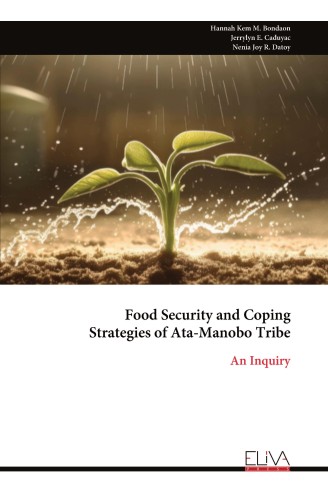
Food Security and Coping Strategies of Ata-Manobo Tribe
$ 49.5
Author:
Hannah Kem M. Bondaon
Pages:106
Published:
2024-08-07
ISBN:978-99993-1-972-0
Category:
New Release
Description
Leave review
Description
This study delves into the experiences of the Ata-Manobo tribe in maintaining a food-secure home and how they utilize their indigenous knowledge as their coping mechanism in times of food insecurity. Using a phenomenological qualitative approach, the study employed a combination of In-Depth Interviews and Focus Group Discussions using an Interview Guide Questionnaire (IGQ) with the fourteen Ata-Manobo adults residing at Feeder Road 5, Barangay Tibal-og, Santo Tomas, Davao del Norte. The study has undergone two validation processes: first, the validation of the research participants and consent to conduct the study through a Free, Prior, And Informed Consent pursuant to Administrative Order No. 1, the Indigenous Knowledge, Systems, and Practices (IKSP), and the Customary Laws (CLs) Research and Documentation Guidelines series of 2012. Second, another validation process was conducted to validate the results of the study. From the responses gathered, thematic analysis was used for data analysis to extract the essential themes. Results revealed that the participants experienced food insecurity due to socioeconomic factors, which affected them emotionally and psychologically. The study also revealed the unique coping mechanisms of the Ata-Manobo tribe in food preservation and food recipes to enhance the palatability of the food and encourage their children to eat. Moreover, the tribe highlighted the importance of root and tuber crops as the most convenient yet nutrient-rich foods in times when they ran out of goods at home. Food insecurity that leads to hunger is still a global phenomenon that is aimed to end by 2030 as part of the seventeen (17) Sustainable Development Goals agenda of the United Nations.



